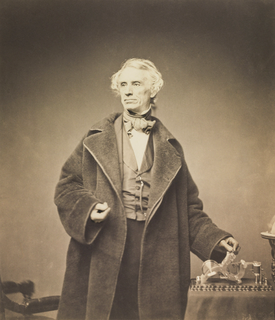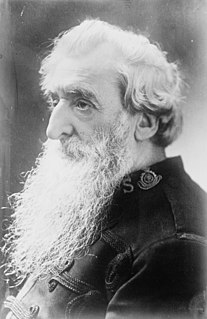A Quote by Samuel Morse
Education without religion is in danger of substituting wild theories for the simple commonsense rules of Christianity.
Related Quotes
Yet Buddhism is four hundred years older than Christianity, and if it's not a universal religion I don't know what a universal religion is. There's also a strong focus on selectionism and the notion that religion plays a functional role in the evolutionary process. But religion is dysfunctional all the time, as well as functional. It's not so simple.
Christianity is not a religion. Christianity is the proclamation of the end of religion, not of a new religion, or even of the best of all religions. If the cross is the sign of anything, it's the sign that God has gone out of the religion business and solved all of the world's problems without requiring a single human being to do a single religious thing. What the cross is actually a sign of is the fact that religion can't do a thing about the world's problems - that it never did work and it never will
Every civil government is based upon some religion or philosophy of life. Education in a nation will propagate the religion of that nation. In America, the foundational religion was Christianity. And it was sown in the hearts of Americans through the home and private and public schools for centuries. Our liberty, growth, and prosperity was the result of a Biblical philosophy of life. Our continued freedom and success is dependent on our educating the youth of America in the principles of Christianity.
With an abstract idea it is possible to enter into a relation of formal knowledge, to become enthusiastic about it, and perhaps even to put it into practice; but it can never be followed in personal obedience. Christianity without the living Christ is inevitably Christianity without discipleship, and Christianity without discipleship is always Christianity without Christ.
Everywhere the tendency has been to separate religion from morality, to set them in opposition even. But a religion without morality is a superstition and a curse; and anything like an adequate and complete morality without religion is impossible. The only salvation for man is in the union of the two as Christianity unites them.
Rules about public sanitation are a simple and familiar example. Without them, a city can't be a healthy place to live; but these rules don't just happen. The rules for a city are different from the ones for a village, but as a village slowly gets bigger, a city may be stuck with the rules of the village.
You see, it's been our misfortune to have the wrong religion. Why didn't we have the religion of the Japanese, who regard sacrifice for the Fatherland as the highest good? The Mohammedan religion [Islam] too would have been more compatible to us than Christianity. Why did it have to be Christianity with its meekness and flabbiness?
Christianity began with 120 in the Upper Room, within three centuries it had become the predominant religion of the Roman Empire. What brought this about? The answer is deceptively simple, while Christianity was being presented to unbelievers in both Word and deed, it was the deed that far exceeded the Word in evangelistic effectiveness.
Discipleship means adherence to Christ and, because Christ is the object of that adherence, it must take the form of discipleship. An abstract theology, a doctrinal system, a general religious knowledge of the subject of grace or the forgiveness of sins, render discipleship superfluous, and in fact exclude any idea of discipleship whatsoever, and are essentially inimical to the whole conception of following Christ....Christianity without the living Christ is inevitably Christianity without discipleship, and Christianity without discipleship is always Christianity without Christ.
Christianity is NOT a religion; it is the proclamation of the end of religion. Religion is a human activity dedicated to the job of reconciling God to humanity and humanity to itself. The Gospel, however - the Good News of our Lord and Savior, Jesus Christ, is the astonishing announcement that God has done the whole work of reconciliation without a scrap of human assistance. It is the bizarre proclamation that religion is over - period.



































